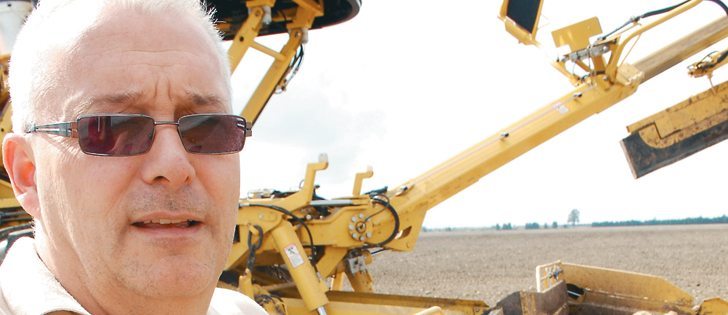WASHINGTON (Reuters) – Scott O’Malia’s early exposure to cutting-edge technology was a primitive Apple computer and a prototype laptop “as big as a sewing machine.”Now he’s grappling with the complexities of sub-millisecond trades and terahertz processors, seeking strategies to outfox programmers and computer-aided algorithmic traders.O’Malia and the four other federal commissioners who oversee the $33 trillion U.S. futures industry are under pressure to move quickly to bring the U.S. Commodity Futures Trading Commission into the modern era.A self-described “basic computer user,” O’Malia is on the forefront of efforts to close the gap between the CFTC’s arcane technology and the state-of-the-art hardware and software used by the traders it polices.“Rather than enforcing the last crime we caught … we need to use computers to figure and run algorithms to catch new trading strategies that might manipulate markets,” O’Malia.The commission still relies on fax machines to receive some trade information, an anachronism it can no longer afford as it grapples with a five-fold surge in U.S. futures trading volume over the past decade and braces for vastly expanded oversight of even larger over-the-counter markets.“We have to be 100 percent electronic and be able to see up and down all trades,” O’Malia said.The CFTC faces daunting challenges: hire a battalion of the same sought-after quantitative analysts that Wall Street banks crave to make money from computer-driven trading strategies; upgrade systems to handle a “tsunami of data” from the $615 trillion over-the-counter derivatives market; and review rules designed for a time when trading was done by humans in pits.Improved technology will be essential for helping the CFTC monitor traders’ speculative positions across both futures and swaps markets. O’Malia has said it is necessary to ensure a controversial energy position limit plan does not drive traders to unregulated markets.O’Malia’s panel, which meets July 14, will study how the CFTC should invest in technology and regulate the rapidly evolving market.The mammoth task became more high profile last month, when a “flash crash” hit the stock market, driving the Dow Jones index down 700 points within minutes.Regulators have said computer-driven high frequency trading may have exacerbated the selloff when some firms stopped making markets in stocks and futures contracts.“The confidence that people have in these markets is absolutely critical,” said O’Malia.He stressed the primary purpose of futures markets is for price discovery and commercial hedging.“People say, ‘Are these still the markets for me?’“We need to have a thorough and complete understanding of technology on the markets. That’s a genie we’re not going to put back in the bottle. Technology is here to stay and we need to understand it better,” he said.O’Malia said he has always been interested in technology, but his passion is politics and policy.He spent 16 years on Capitol Hill, including stints working for senator Mitch McConnell, now the top Republican in the Senate, and later as a high-ranking staffer for former senator Pete Domenici on a committee that funds the energy department and related agencies.Next month, O’Malia’s panel, to include as yet unnamed academics, exchanges, clearinghouses, trade repositories and other groups, will pore through studies and information about where markets are heading, and how the agency can catch up.At the top of his list of concerns are strategies used by high frequency traders that could undermine confidence.“I don’t feel we have a very good sense about what these trading strategies are,” he said.“I’m not worried about stepping on toes. We’ve got to make these markets function properly, effectively,” he said.The CFTC is in the throes of a hiring frenzy, boosting its ranks by nearly 40 percent in three years, and investing in data storage.
Read Also

Alberta looks for agricultural plastic management input
Alberta provincial government giving agriculture industry a say through survey in shaping future plastics management














